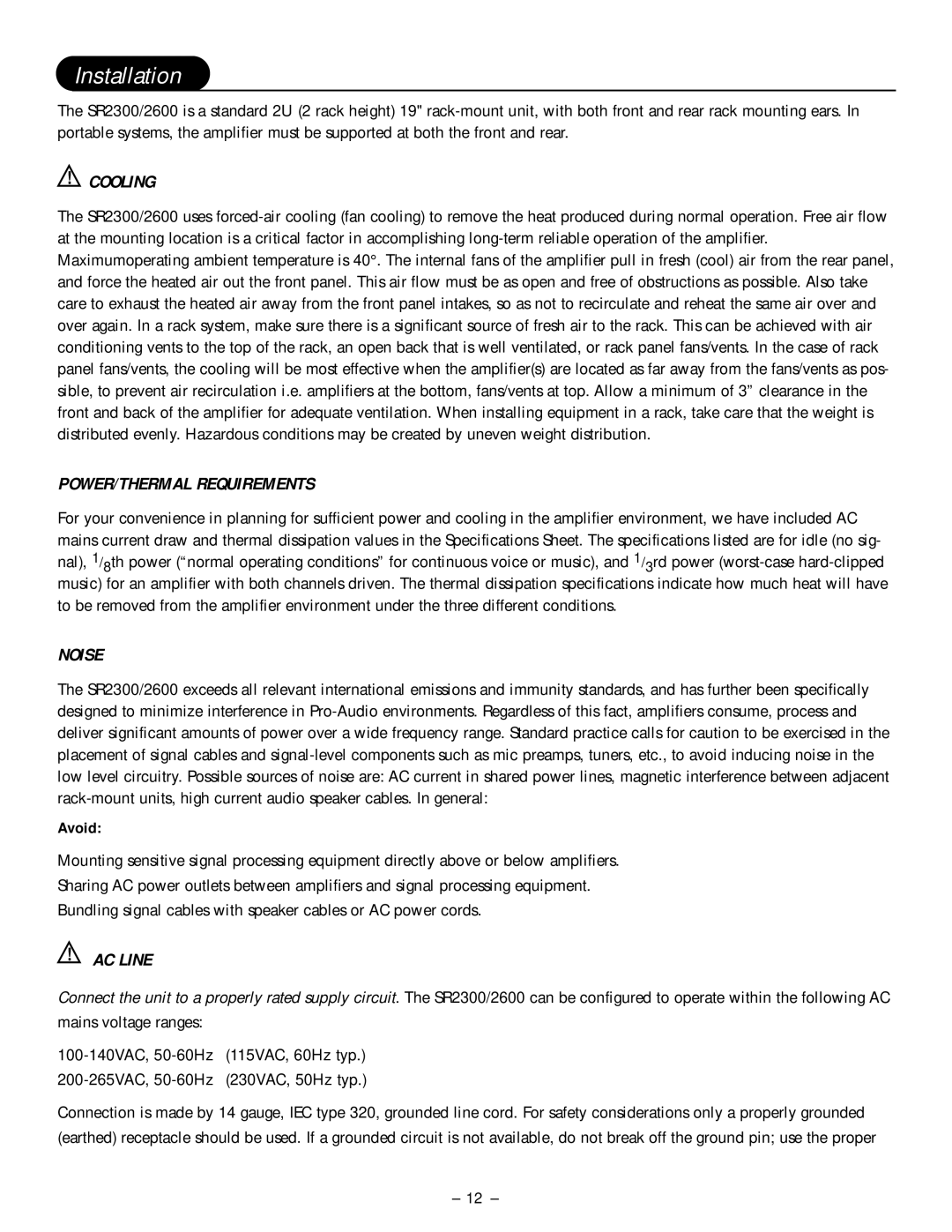SR2600, SR2300 specifications
The Hafler SR2300 and SR2600 are high-performance power amplifiers designed for audio enthusiasts seeking to elevate their listening experience. These models are renowned for their remarkable sound quality, powerful performance, and innovative technologies, making them ideal for both home audio systems and professional applications.Starting with the Hafler SR2300, this amplifier is a two-channel powerhouse capable of delivering up to 150 watts per channel at 8 ohms, and 225 watts per channel at 4 ohms. One of the key features of the SR2300 is its Class AB design, which strikes an optimal balance between efficiency and sound fidelity. The design minimizes distortion, allowing for clear and precise audio reproduction across a wide frequency range. The amplifier also boasts a frequency response of 20 Hz to 20 kHz, ensuring that both low and high frequencies are accurately represented.
The SR2300 is equipped with a high-performance, toroidal power transformer, which enhances its ability to deliver a stable power supply to the output stages, resulting in improved dynamic range and transient response. Additionally, the SR2300 features comprehensive protection circuitry, safeguarding the amplifier from overheating and short circuits, ensuring reliable operation even under demanding conditions.
In contrast, the Hafler SR2600 offers even more power and versatility, pushing out up to 250 watts per channel at 8 ohms and 400 watts at 4 ohms. This model maintains the same renowned Class AB architecture as the SR2300 but integrates additional features such as a balanced XLR input for enhanced connectivity and reduced noise, which is invaluable in professional audio settings. The SR2600 also incorporates advanced thermal management systems, allowing it to operate efficiently even during prolonged use at higher output levels.
Both models come with customizable gain control options, allowing users to tailor the output to their specific needs. Whether being used to drive high-efficiency speakers in a home theater setup or powering professional studio monitors, the Hafler SR2300 and SR2600 deliver rich, detailed sound that remains consistent across various listening environments.
In summary, the Hafler SR2300 and SR2600 stand out in the audio amplifier market with their robust design, high power output, and advanced technologies that prioritize sound quality and reliability. These amplifiers continue to be favored choices for both audiophiles and professionals, ensuring an engaging and immersive audio experience.

